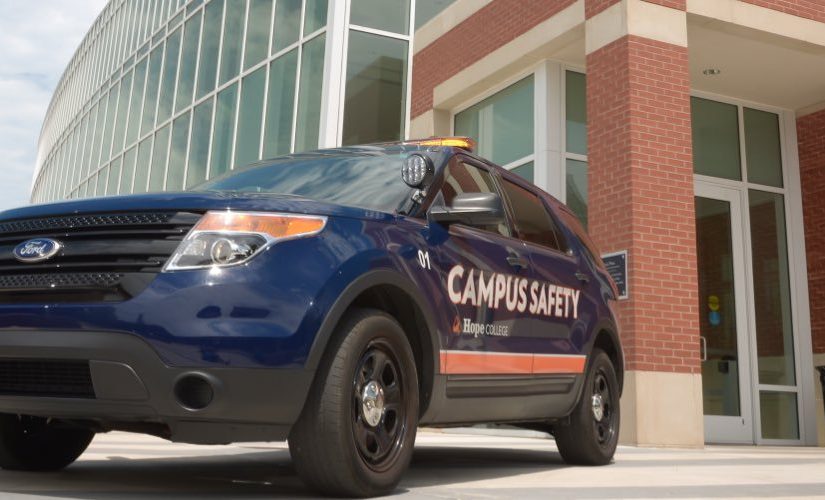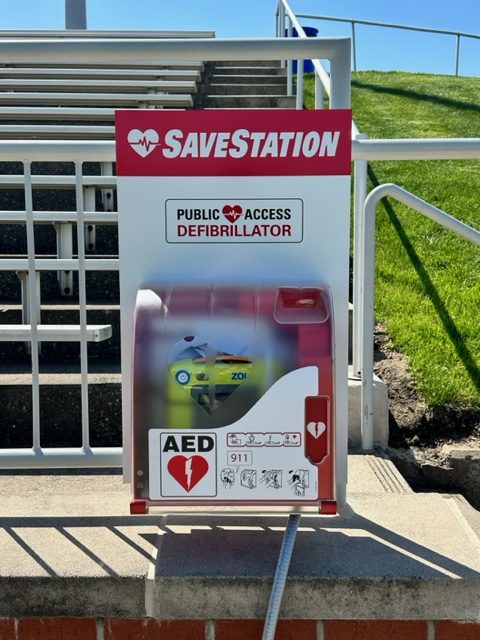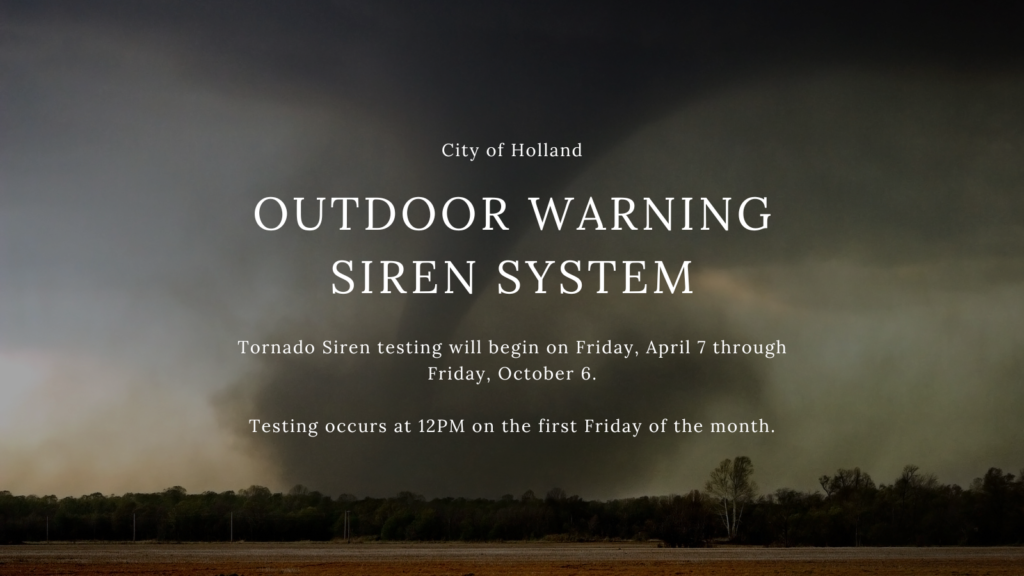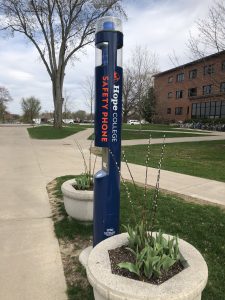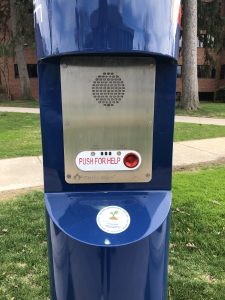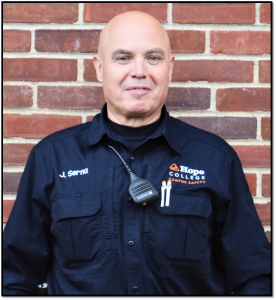The Hope College Campus Safety Department is singularly focused on one goal: To keep all in our campus community safe and secure. Your own safety should be your top priority, too. With the start of a new academic year, we in Campus Safety want to remind you about these important safety tips:
- Avoid walking alone….especially in the dark!
When it comes to walking around campus, there is power in numbers. After a late night at the library or visiting friends, ask someone to walk with you, take the campus shuttle (see Shuttle Stop #2), or call Campus Safety to escort you.
- Ride the Campus Shuttle
The free Hope shuttle van circles campus every evening from 6 p.m. to 11 p.m. on a counter-clockwise route around core campus. Take a look at this route map, then look for shuttle signs around campus that show their corresponding route stop times. Not only is it safe, warm, and fast, it is sure to have a stop and time convenient for you.
- Use the Code Blue Safety Phones
In 17 spots spread throughout campus, there are Code Blue Safety Phones that call in directly to Campus Safety in case you need assistance or are in an emergency situation. Be sure to push the button firmly to be directed to Campus Safety.
- Be Aware of Your Surroundings
Make sure you are aware of your current surroundings when walking outside. If you wear earbuds, consider only wearing one to keep an eye on the environment and to hear what is happening around you.
- Add Campus Safety as a contact in your phone.
Add the Campus Safety phone number as a contact in your phone – (616) 395-7770. You never know when you may need to act quickly.
- Lock your car, take your keys, and hide your belongings!
An easy and highly effective way to prevent car burglary is to lock your car and to take all of your valuables with you. This helps to ensure that your vehicle is not an easy target. If you do have to leave valuables in your vehicle, keep them tucked safely out of sight.
- Don’t prop open doors or share your housing code.
It may seem convenient to prop open your door or share your code with a friend, but when you do that, you are putting your belongings, roommate/housemates, and yourself at risk. An open door is an invitation for people who might not call your house or res hall their home. Keep what is meant to be private, private.
- If you see something, say something!
If you see something that looks out of the ordinary or suspicious, please call Campus Safety. Examples of this might include doors or windows left open that are usually closed; a suspicious person who may not be part of our college community and is asking students for information; an argument or disagreement between two people that continues to escalate; a person asking about our buildings and facilities beyond a casual interest; or, persons taking photographs or video that might not be for college use. Even if you are slightly suspicious of someone or something, it is always best to play it safe and call Campus Safety. We are happy to respond to any concern you may have.
- Sign Up for HOPE ALERTs
The HOPE ALERT system sends texts and emails to members of the Hope campus community about urgent and immediate safety information.
To sign up for the system or verify that your information is current:
- Log in to plus.hope.edu with your User ID and PIN.
- Enter Secure Area > Personal Information > Update Emergency Contacts
- If your name is not listed, add a New Contact. Enter your name and cell phone number.
- To receive emergency text messages, the relationship must be set to Self and your name must be listed in the first (1) order spot.
- Click Submit Changes.
- Just call
Even the best safety tips can’t prevent every emergency. If you are ever in doubt, call Campus Safety at (616) 395-7770.


